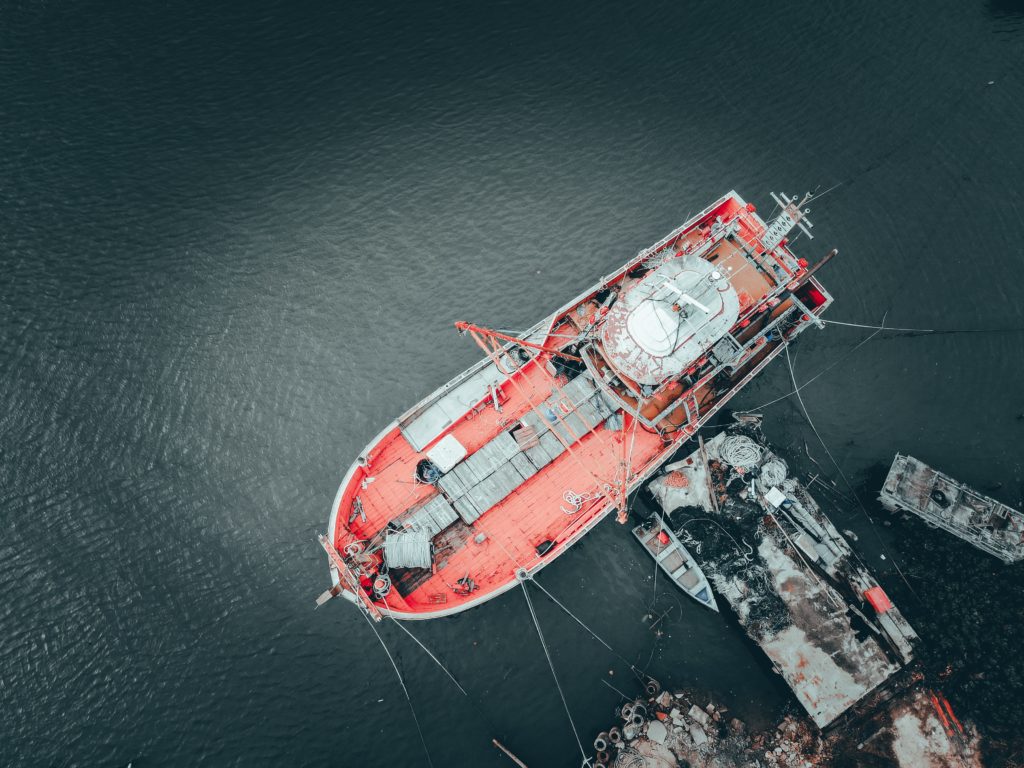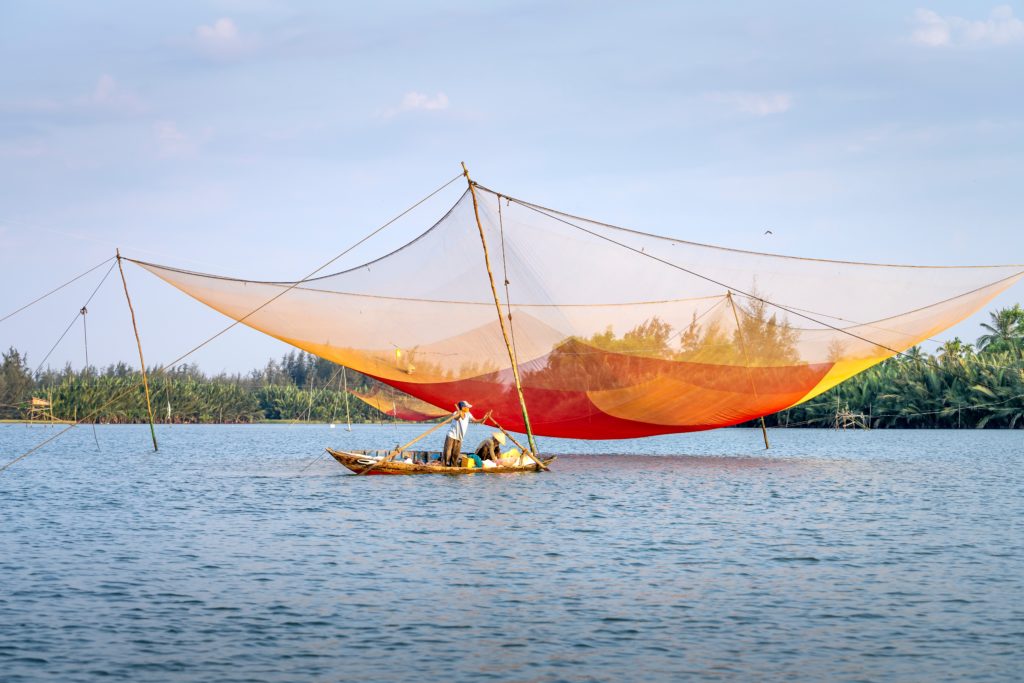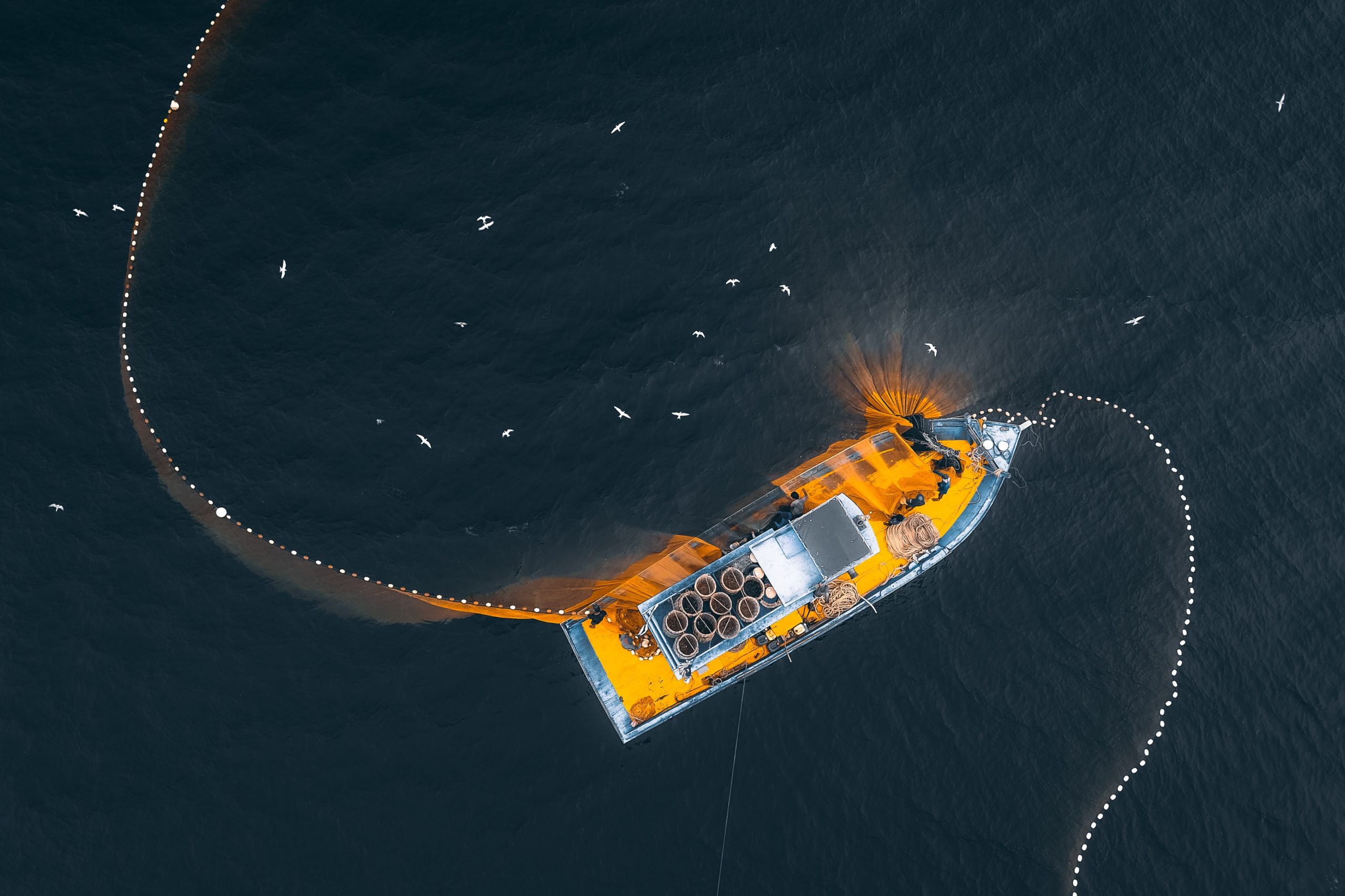3 Mins Read
A new study has revealed that one-third of all fishery offences are connected to industrial interests. Of that third, more than half (59 percent) are connected to Chinese interests. 450 commercial fishing vessels are implicated, representing just 20 individual companies. While China takes the lion’s share of offences, Indonesian vessels came second with 15 percent and South Koren boats racked up 12 percent of the crimes.
Fish Crimes in the Global Oceans is the new report published in Science Advances. It was created for Oceana, an ocean conservation interest. A database of global fishing offences was analysed to break down where the most illegal activity is emanating from. Crimes were then connected to other activities, including money laundering, drug trafficking and forced labour.

Fishing offences explained
The study has found that almost half of all criminal activity was centred around fishing without relevant permits. In this case, independent and ‘artisanal’ fishers were mostly to blame. Under-declaring catch weights was a frequent offence but it was human rights issues that became prevalent. 11 percent of all illegal activity involved labour and human rights violations, which could include pay rates, worker hours and ages. Almost all of these were committed by industrial fishing fleets. Less frequent but still identified were cases of smuggling and fraud.
“Illegal fishing is ubiquitous across the world, threatening fisheries sustainability and inflicting high costs on the environment and society through declines in fish population, ecosystem degradation, revenue losses, and food insecurity,” The report reads. “Motivated by high demand for seafood, profit-seeking, and fewer fishes, illegal fishing accounts for nearly 11 to 26 million tonnes representing a quarter of the US$120 billion global landed value of fisheries. As a transnational and organized activity, illegal fishing potentially lends itself to labor and human rights abuses, as well as the trafficking of drugs, migrants, weapons, and wildlife, particularly in poorly regulated spaces.”
The data analysed was collated between 2000 and 2020. A total of 6853 events, spanning 18 offence categories were identified. Alongside Chinese-owned boats, E.U. and Canadian vessels were named as serial offenders and those from tax haven regions.

China’s history of fishing calamities
August 2020 saw Chinese fishing vessels raising alarm. An enormous fleet of approximately 260 boats was identified surrounding the Galápagos Islands. While boats had traditionally come to the region, the Ecuadorean navy had never seen such a high number before, leading to concerns about the protected marine ecosystem. In particular, the addition of large refrigerated fleets caused fears that overfishing would be undertaken. Two weeks later, China pledged to increase the sustainability rules facing its distance fishing fleet. Observers raised concerns that this would only happen if enforcement occurred. Countless other worrying practices, including the hunting of sharks, have been identified within the Chinese fishing sector.
Demand for seafood remains high in Asia, expected to see a 70 percent growth in the global seafood sector. More seafood is eaten per capita in Asia than anywhere else in the world, and as such, the fishing industry is increasingly under pressure to meet demand.
Educating the world
Last year, Netflix released Seaspiracy onto its streaming platform. The film shone a light on the devastating impact of commercial fishing. The documentary was met with mixed reviews. Activists praised the look at what the fishing industry is doing to the planet. Companies portrayed within took a dimmer view, insisting that they had been misrepresented. Oceana, the commissioner of the above report, was one that took umbrage with its portrayal.
Lead photo by Pok Rie at Pexels.





